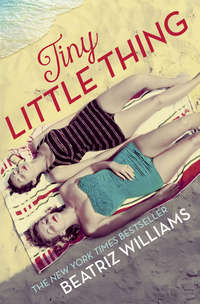
Полная версия
The Golden Hour
As I reached the base of George Street, I hesitated. Instead of continuing to the hotel, I turned left, walked up the street, past the Red Cross headquarters to stand at the bottom of the steps that led to Government House. Darkness had drained away the pinkness of it, the confectionary quality. A constellation of lights shone through the various windows. I could just make out the guards at the main entrance, standing at brutal attention, and the perfume of the night blossoms, wafting from the gardens behind their wall.
BACK IN MY ROOM AT the Prince George, I changed into my pajamas, brushed my teeth, drank a glass of water, and took some aspirin. Fetched my suitcase from the wardrobe and opened it. There was a knock on the door, not entirely unexpected. I had asked for a final bill from the front desk, as I intended to check out tomorrow morning.
But it was not the bill at all. It was an envelope, addressed in an elegant, calligraphic hand to Mrs. Leonora Randolph. Inside lay an invitation from the Duke and Duchess of Windsor to a cocktail party this Saturday at seven P.M. in the gardens of Government House, to benefit the Central Bahamas Chapter of the International Red Cross Society.
ELFRIEDE
AUGUST 1900
(Switzerland)
TWO WEEKS AFTER the encounter in the infirmary garden, Herr Doktor Hermann offers Elfriede an unusual question in the middle of their afternoon discussion.
“Would you say, Elfriede,” he intones, making a bridge with his hands, “would you say that you love your husband?”
ELFRIEDE’S HUSBAND. DOES SHE LOVE him? They were married four years ago. She’d celebrated her eighteenth birthday only a month before the wedding, in a small party attended by her parents and siblings and prospective sisters-in-law (her husband is an orphan) and Gerhard himself—of course—aged thirty-three, the giant Baron von Kleist who was doing her such a preposterous honor as to marry her. Of course, her beauty was to blame for that. Why else should a baron of such ancient lineage, of considerable fortune and figure, stoop to marry the daughter of a mere burgher? They had met skating on the village pond, a democratic location. Elfriede was an especially graceful skater, and Gerhard was not, and whether by accident or intent he had crashed into her, just gently enough that she wasn’t hurt, but so decisively that he had no choice but to apologize profusely for the accident and buy her a cider. “Why, he’s in love with you,” her mother whispered eagerly the next day, after the baron paid an afternoon call to assure himself of Elfriede’s recovery, and Elfriede—well, Elfriede was too overwhelmed, too flattered, too mesmerized to understand whether she returned that love or not. Gerhard von Kleist was not exactly handsome, but he was tall and magnificently built, he was well-dressed and well-read, he had a disarmingly earnest way about him, and above all he was Gerhard von Kleist! He was a nobleman, the hereditary master of Schloss Kleist; he was a great man, he was an officer in the army, he hunted often with the Kaiser himself. By April they were engaged; by June the banns were called, and on the first of July they were married in the beautiful church in the village, disapproving sisters-in-law to one side and ecstatic parents to the other, amid much good-natured congregational whispering about the baron’s haste to make the flaxen-haired Elfriede his lawful bride.
Before they left for the church, in the carriage bedecked with flowers, Elfriede’s mother pressed a lace handkerchief into her hand, as tradition required. Elfriede was to mop up her bridal tears with this linen square, and afterward to fold it and tuck it away in her drawer on her wedding night. There it’s supposed to lie, until one day, when Elfriede dies, the Cloth of Tears will shroud her cold, dead features. Tradition. As it turned out, Elfriede didn’t cry at all during the ceremony that united her to Gerhard, nor in the carriage to Schloss Kleist while Gerhard held her hand snugly beneath her massive wedding dress, nor during the wedding banquet in the schloss’s baroque great hall, two hundred years old, bearing an exquisite resemblance to the wedding cake itself. (Her mother exclaimed over the dryness of the Cloth of Tears, when she extracted it unused from Elfriede’s bodice as she prepared her daughter for bed.) And she did not cry when Gerhard himself entered the nuptial chamber, smelling pungently of soap, dressed in pajamas and a silk dressing gown. Elfriede had drunk several glasses of champagne, and her new husband appeared to her in a haze as he approached the monumental bed on which his bride sat. He knelt—such a big, powerful man, thirty-three years old, kneeling before her!—and covered her hands with kisses. Elfriede stared down at his wheaten head, worshiping her, and felt a sincere, loving warmth move her heart. A sincere connection to Gerhard, who had shared this day with her, who had stood by her side, the two of them united against all those curious guests and well-wishers. “I will be gentle, my dearest girl,” he promised, removing her nightgown with trembling fingers, kissing her mouth and her breasts and everything else, and Elfriede, dazed and tender, lay back on the embroidered bedspread while he climbed on top of her, and still she didn’t cry. He untied the belt of his dressing gown and shrugged it off, but he didn’t remove his pajamas. Perhaps he didn’t want to frighten her. In any case, he reached inside his pajama trousers and drew out his organ, primed for business, and Elfriede, being somewhat drunk for the first time in her life, couldn’t help glancing at this thing that had consumed her curiosity since adolescence, this object designed by nature to plant seeds inside her womb. At the reality of her husband’s erection, however, the tears sprang at last to her eyes. “Oh no!” she said, but it was too late. Gerhard’s face had already clouded over with rapture, he was already fitting this startling, stiff machine—nothing like the harmless anatomy of the classical statues, God have mercy, of the Renaissance paintings—between her legs. As he shoved his way in, saying her name and invoking his love for her while he split her apart, she gripped the pillows and wept, but the Cloth of Tears was already tucked away in her bureau, unreachable and useless.
HERR DOKTOR HERMANN’S QUESTION IS strange not because of its intimacy—certainly they have touched on intimate subjects before—but because of its specificity. How do you feel about your husband? he should have asked instead. By inserting the word love inside the query, he’s compromised the honesty of her answer.
Elfriede stares at the bridge made by his long, latticed fingers, and his face just above, which seems a little flushed, though today’s weather is far from warm. “Why do you ask?” she says.
“Because it is important for me to know, as your doctor. As your doctor, I must know these vital details, Elfriede, so we may progress in your treatment.”
Dr. Hermann’s fingernails are small and shallow, almost as if the tips of the digits had been chopped off at some uniform length, or else cut short at his creation. Elfriede thinks of her son’s tiny fingernails, like fragments of seashells, and how she used to gaze on them in awe and also fear, unable to understand how such delicate ornamentation could have come from her. From Gerhard and his bear paws.
“Of course I love my husband,” she says.
Dr. Hermann considers. “You say ‘of course,’ Elfriede. Why do you say ‘of course’? Is it necessary for a wife to love her husband?”
“A wife would be a beast if she didn’t love a man such as my husband. She would be unworthy of life.”
Herr Doktor’s hands spring apart. He turns to his notebook, lifts the pen lying in the crease, and writes something down. When he looks up again, his cheeks are even more flushed than before, and the tip of his nose.
“Are you a beast, Elfriede?” he asks. “Are you unworthy of life?”
Elfriede rises from her chair. Because the weather’s blustery, they’re indoors, inside Dr. Hermann’s private office, equipped with comfortable armchairs and a sofa. On the wall opposite Elfriede hangs a painting of the Ringstrasse in Vienna, where the large, baroque houses remind her of Schloss Kleist.
“Excuse me,” she says. “I’m going to get a little air.”
ACTUALLY, THERE’S NO SUCH THING as a little air in a place like this, a monastery arranged on the slope of a mountain so as to be far from mankind and nearer to God. You walked outside and encountered huge mouthfuls of it, you had to gulp to keep pace, to save yourself from drowning, and sometimes there was so much air you turned your back on the wind and made your way along with your shoulders hunched against this onslaught.
Today’s such a day, a day that doesn’t know it’s supposed to be August instead of October. You can actually see the wind as it hurtles between the peaks, dragging along thick shreds of clouds, and you feel it as an ocean current. Cold and forceful it strikes you, sharp and wet at the same time, turning your cheeks and your fingers numb, any skin you dare to lay bare. Elfriede, wearing a thick, belted cardigan but no coat, no jacket of any kind, relishes the hardship. She trudges along the path that leads downward toward the trees, a trail she knows well, every rock, every kink of landscape. The heads of the wildflowers huddle low to shield themselves, like Elfriede herself. The surrounding peaks are invisible inside this mass of howling clouds. No, forget the surrounding peaks, even her own mountain is lost to sight, the slope disappears before her, and she walks on faith alone, curling her fingers inside her sleeves to keep them warm.
Then the first trees flash between the streams of mist. Grow larger, more certain, more plentiful. Elfriede quickens her stride. She reaches the stubby pines at the vanguard, and a hundred or so yards later she’s enveloped by them, like stepping into a cathedral. The wind dies to a breeze. She finds a fallen log and sits in relief. Leans her head back against a thin, hardy trunk. She loves the smell of wood and rot and moss. She closes her eyes and dreams of her baby, whose features are blurred, but whose heart she feels clamoring inside her chest, whether she wants it there or not.
Though the trees muffle the howling of the gale, the forest is not silent. The branches rustle, the wind whines between the pine needles. Certain of her own solitude, Elfriede doesn’t hear the sound of footsteps as they approach, only the voice that greets her, an instant after she senses the vibration of another human being.
“Frau von Kleist?” a man inquires, in a slight, courteous English accent.
TWO WEEKS HAVE PASSED SINCE Elfriede encountered the Englishman in the infirmary garden. To be precise, sixteen days and a few hours, but who’s counting? Her eyes fly open, she startles upward from the log. She beholds him, a pumpkin-headed skeleton belted into a thick Norfolk jacket, wool trousers, leather gaiters. A hunting cap covers his wide skull, his stubbly ginger hair. There should be a pipe sticking from his mouth, a shotgun nestled in the crook of his elbow to complete the picture, but mercifully no.
“You shouldn’t be out in such weather,” she exclaims.
“Probably not. Yet here I am. You might say the mountains called me. Do you mind awfully if I sit down? Still a bit short-winded, I’m afraid.”
“No, of course not.”
He doesn’t move, just stands there smiling inquisitively, and Elfriede realizes that he won’t sit until she does. A gentleman. So she drops back onto her log. Mr. Thorpe finds a boulder. Beneath the collar of his jacket, he wears a scarf of bulky wool. Elfriede drops her gaze to the ground before her, which is cushioned in old brown pine needles.
“You shouldn’t be out,” she says again.
“Do you know, that’s exactly what the orderly told me.”
“You should have listened to the orderly.”
“Oh, I’m used to this sort of weather. I spent my summers in Scotland, with my mother and her sisters. Frightful, most of the time. Of course, when it was fine, there was no lovelier place in the world. Do you mind if I smoke?”
“Smoke?”
He was already drawing a silver case from his jacket pocket. “You’re about to tell me I shouldn’t be smoking, either.”
“But it’s true. You’ve had pneumonia.”
“You’re quite right, of course. I do all sorts of things I shouldn’t do.” He lifts a match, preparing to strike, then lowers it. “I say, you don’t mind, do you? If you object to the smell, I mean.”
“N-no.” Elfriede thinks she should probably have said yes, because tobacco smoke is possibly the last substance on earth that should fill the passages of Mr. Thorpe’s ravaged lungs at the moment, short of poisoned gas. But his pleasure, his anticipation is so obvious, she doesn’t have the heart to deny him. A pattern that will shape all the days they spend together.
“Ah, but you do mind, don’t you? How kind you are. If only I were good enough to return the favor.” He strikes the match and lights the cigarette, and when he’s taken a long draft, eyes shut in pleasure, and exhaled slowly, taking care to release the smoke in the opposite direction from Elfriede, he opens his eyes again and says, “I can’t begin to express my gratitude. First fag in nine weeks. Tell me how to make it up to you.”
“You can stop. You can take care of yourself, so you don’t relapse.”
Mr. Thorpe squints at a point a meter or so to her left. He has the kind of face that suits squinting. Crinkles his expression in a genial way. “I’ve been giving that some thought, actually.”
“I hope so.”
“I mean, my recovery has been altogether too rapid, if you know what I mean. Blessed as I am with my mother’s formidable constitution. Just the other day, they were talking about discharging me.”
“Isn’t that a good thing?”
“Well.” He turns back to her, turns the full force of himself upon her blushing cheeks. “That’s the question, isn’t it?”
“I don’t think there can be any question. Of course you must get better.”
“But leave? Aye, there’s the rub.”
“Don’t you want to leave? To return to Vienna and your amusing life there?”
He sits there smoking, and his refusal to answer is answer enough. Just like her husband, who fell in love with her at a stroke—fell in love, at any rate, with her flaxen hair and celestial eyes, her round and childlike face, her expression of dreamy otherworldliness. Imagined she represented some kind of ideal, and was horrified to discover the reality.
“I’m not what you think,” she says.
“How do you know what I think?”
“Besides, I’m married. I’m married and I have a baby, a son, three years old.”
“I’m afraid I don’t follow you. Haven’t you already told me these facts? Believe me, I know them well. Except the age of your son, bless him. Three years old! He must be a sturdy little man by now.”
“I wouldn’t know,” she says. “They won’t let me see him. I have been living here for two—two years—”
“Oh, my dear girl.”
Mr. Thorpe crushes out his half-finished cigarette on the boulder. Elfriede hides her face and doesn’t see him rise to his feet and cross the carpet of pine needles between them. When he stops at the log and sits beside her, she feels the warmth of his body underneath the wool.
“Don’t they send photographs?” he says. “Your people?”
“Herr Doktor forbids it. He says it will bring about a nervous relapse.”
“Herr Doktor?”
“Herr Doktor Hermann. My analyst. He’s well versed in the latest—the latest methods for disorders—like mine.” Elfriede struggles to keep her composure, to speak rationally through the web of fingers covering her face.
“You’ll forgive me, but Herr Doktor’s methods strike me as a trifle barbaric.”
Elfriede’s so astonished, she lifts her face away from her hands and meets Mr. Thorpe’s plain, large gaze directly. His freckles. His eyes, a startling blue. “But he’s a doctor!” she gasps.
“What does that mean? He’s got a paper of some kind, a degree in some scientific subject, which will probably prove entirely obsolete in a decade or so. Any fool would call that barbaric, to keep a mother away from her child. Not even a photograph!”
“You don’t know. You don’t know.”
“Know about what? Your breakdown, as you call it?”
“I’m unnatural,” she says. “An unnatural mother.”
“Well, what the devil does that mean? You seem natural enough to me.”
“I’m not, believe me.”
By way of reply, Mr. Thorpe fixes her with an expression so compassionate, she has to look away. But looking away is not enough. The compassion remains in the air, on her skin, seeping into her flesh, inescapable. She stares at his shoulder and her heart crashes. Fear, or attraction? Are they perhaps the same thing?
“I went mad after he was born,” she says. “An extreme form of nervous melancholy. It’s a particular malady and one of Herr Doktor Hermann’s special fields of interest.”
“This Hermann fellow—have I met him?”
“I don’t think so. He’s in the psychiatric section.”
“The loony bin, you mean?”
Elfriede refuses to laugh. Instead she examines the collar of his jacket. The woolen scarf tucked inside, protecting his neck and chest from the damp, cold air. She whispers, “You should be disgusted. You should be appalled.”
“I’m just waiting to hear the rest of the story.”
“There is no rest of the story.”
“Rubbish. Of course there is. Lots of new mothers have a spell of the blue devils after their babies are born. My cousin spent a rough few weeks, as I remember. By God, I don’t blame them. I should imagine the whole affair’s rather a shock to the system, and then you’ve got this child to take care of, this mysterious little being keeping you up all hours and so on.”
“Not like this. I couldn’t—I couldn’t get out of bed. I couldn’t—it was like a shroud settled on me. I thought I was going mad. I should have been joyful, I should have been grateful. I had a rich, loving husband. I had a beautiful baby. Everything for me was perfect. But I felt miserable and terrified. I felt shadowed by doom. I can’t even describe how black it all was. I looked at his face, his little squashed face, and he was a stranger. I thought, I don’t love you, I don’t even know you, who are you?”
“Poor Elfriede … my poor girl … and nobody understood …”
Now Elfriede raises her head to Mr. Thorpe’s kindly, bony face. She defies his kindness. She defies this compassion of his. She defies his freckles and his pale, gingery eyebrows.
“I tried to kill myself.” (She flings the words at his long eyelashes.) “I thought I should kill myself, because I was no use to my baby at all. I was a terrible mother. I was poisoning him with my own bitter milk. I thought I should kill myself before I killed my own baby.”
Mr. Thorpe doesn’t reply. Not in words, anyway. He lifts his arms and puts them around her. Her defiance crumbles. She leans into his ribs, into his shrunken chest, and shudders out a barrage of tears into the left-hand pocket of the Norfolk jacket, the one covering his heart. A shooting jacket, designed to withstand far more serious attacks than this one, thank goodness. His thumbs move against her back. He doesn’t speak. She smells wet wool, and the particular scent she caught two weeks earlier, in the infirmary garden, soap and the salt of human skin. Mr. Thorpe’s skin. Eventually she turns her face to the side and speaks again.
“I spent a month in hospital, and then they sent me home. Everybody pretended nothing had happened, that I had caught a bad cold or something. Except they wouldn’t leave me alone with the baby. My milk had dried up. Everybody was so polite and cold.” She pauses, considers, forges on brazenly. “And my husband—Gerhard—I wouldn’t—I was afraid of having any more babies—”
“Dear me. Poor Gerhard. So they sent you here to recover your senses.”
“Yes.”
“When are you supposed to go back home?”
“When I’m cured,” she says. “When Herr Doktor Hermann decides I’m well enough.”
“Ah, this Hermann again. You know, I’m loath to point fingers at another man, but it seems to me that he’s had two years to cure you. Two years, and you’re clearly in your proper senses, no danger to anybody. Only a lingering sense of guilt, which a loving family ought to be able to conquer.”
“Maybe it’s better if I don’t go back. Maybe my son—my little Johann—I’m a stranger to him—”
“Is that what this Hermann chap’s been telling you?”
“No. He doesn’t tell me things. He only asks questions, for the most part.”
Mr. Thorpe makes a noise that Elfriede will one day recognize as coming from the Scotch side of him. She remains in his arms, laid comfortably against his chest, shielded from his sharp, skinny bones by the woolen jacket. She doesn’t want to move. Has no ability, even, to stir from this place of refuge. His jacket, her Cloth of Tears.
“Anyway, he doesn’t love me anymore,” she says.
“Who doesn’t? Your son?”
“My husband.”
“Did he say that? Did he say he doesn’t love you?”
“No, but I saw it in his face, after I came back from the hospital. I was alien to him. He thought he’d married an angel, and as it turned out …”
“Speaking from the male perspective,” Mr. Thorpe says slowly, “of which I naturally consider myself something of an expert. Perhaps it was something else?”
“No. No. A woman can tell. A woman can tell when a man doesn’t love her.”
“Well—and I’m only speculating, mind you—a man whose wife—how do I put this? A man whose beautiful wife no longer allows him the singular privilege for which he married her—”
Elfriede starts to draw away. But Mr. Thorpe makes a little squeeze of his arms, not to keep her there, not so firm as that, but to let her know she’s welcome to stay, if she likes. So she pauses, no longer pressed against his chest, but close.
“It’s possible, you see, that he thought you didn’t love him. And a chap who believes he’s lost the love of a woman—forgive me—a woman such as you—well, I daresay it might ruin him.” Mr. Thorpe pauses. “That’s only conjecture, mind you. I haven’t met the lucky Herr von Kleist.”
“No, you haven’t.”
Another slight squeeze. Elfriede capitulates. The lure of comfort is too much for her. Warm human contact. Warm human arms, warm human chest. Things for which she’s starved. A famine of touch.
“Thank you for your music,” Wilfred says. “I was afraid you’d stop.”
“I wasn’t sure whether I should. I didn’t want to keep you awake.”
“Keep me awake? Kept me alive, I think.”
“Oh!”
“So why did you? Keep playing, I mean.”
“Because I … well, I …” She shouldn’t say the words, but she must. She might conceal her true thoughts from the doctor, but she can’t conceal them from Wilfred. Oh, his actual heart, thudding under her ear! She whispers, “Because I thought you might be listening.”
“Damn it all,” he says softly.
“What is it?”
“Nothing. Just hellish fate, that’s all.”
Elfriede says, “Tell me about this girl of yours.”
“Girl? Girl? I’m afraid I don’t know any other girls.”
“You told me there was a girl.”
There is a sigh from inside that ravaged chest, far more sigh than Elfriede might have imagined possible. It ends in a cough. Not a bad one. Not the cough of two weeks ago.
“Right. Her. Well, you know, she’s quite the opposite of you. Older and rather cosmopolitan. Divorcée of a well-known composer, I won’t say whom. Just the sort of woman to render a callow youth—an ugly, awkward fellow such as myself—dizzy with ecstasy.”
“And did she?”
“Yes.”
“Pardon me,” says Elfriede, smiling a little, “but you don’t sound ecstatic.”
“That’s because …”
“Because?”
“Because I shall have to go back to her shortly, I suppose. And the prospect is not what it once was. Don’t ask why.”
“Why?”
That noise again. “Let’s just sit here a moment longer, shall we? I daresay we’re not doing anybody any harm, just sitting here.”







